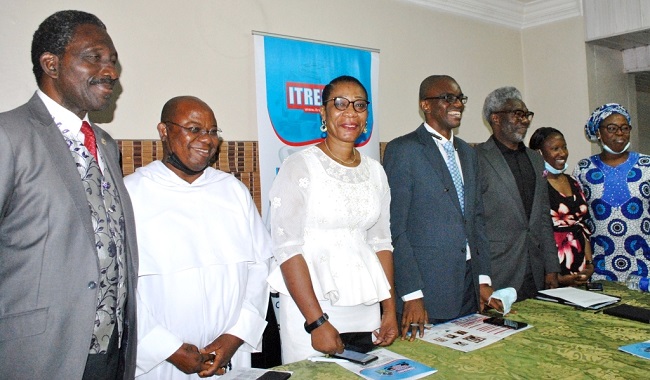The Nigerian Communications Commission (NCC) has powers under Section 70 of the Nigerian Communications Act (NCA2003) to develop an E-waste Regulation for the telecommunications sector in the country.

This declaration was made by the Executive Vice Chairman and Chief Executive Officer of NCC, Prof. Umar Garba Danbatta, in his keynote address at the 2021 ITREALMS E-Waste Dialogue held in Lagos on Thursday, December 9 with the theme: “E-Waste in Nigeria: Consumer as key to Circular Economy & 20 years of GSM”.
Danbatta, represented by the Head of New Media, Dr. Ominiyi Ibietan, said that as at March 5, 2019, based on the Commission’s participatory rule-making procedure, the NCC came up with a draft of the E-waste Regulations and Disaster Recovery Guidelines which were hitherto published on its website for comments from the general public, especially telecommunications operators and other stakeholders.
“As required by law, a Public Inquiry on the E-waste Regulations and Disaster Recovery Guidelines was scheduled for March 5, 2019 and a Notice of the Public Inquiry was published in Daily Trust and New Telegraph Newspapers on Monday February 11, 2019,” he said.
The public inquiry, he also disclosed, had over 61 persons representing telecommunications operators, interested stakeholders and the media in attendance, which offered him the opportunity to explain the importance of having a proper legal framework to regulate e-waste in the telecommunications sector.
“Considering that e-waste is the fastest growing waste stream in the world and a recent report by the World Economic Forum (WEF) estimated that this waste stream increased by about 48.5 million tonnes in 2018,” he said.
Prof. Danbatta defined e-waste as “electrical or electronic equipment that is waste, including all components, sub-assemblies and consumables that are part of the equipment at the time the equipment becomes waste.”
In addition, based on the WEF, over 75% of electronics imported into Nigeria were irreparable and toxic junk, which means that this menace remained rampant due to the low Gross Domestic Product (GDP) per capita/low income and the desperate quest for information by Nigerians.
The prevalence of e-waste, he said, raised a lot of pollution issues which should be managed, because of the resultant effects on humans and the environment.
Further, NCC, in line with its commitment to sustain phenomenal successes recorded in the sector in the past 20 years, also developed the ‘Disaster Recovery Guidelines’ to mitigate disasters that might affect business continuity in the industry and jeopardise the incredible success already recorded.
The Guidelines, Danbatta said, was introduced as part of the Commission’s wider risk management initiatives, aimed at protecting telecoms companies from the threat of emergencies in their operations.
The Commission, he equally said, in developing robust regulations and guidelines are to enhance development of the industry and the entire economy.
In giving general overview of NCC’s e-Waste regulations, Prof. Danbatta said it is made up of 31 regulations structured into 16 parts.
Also included in the Regulations, he said, are one Schedule, nine Forms and four Tables, stressing that the Regulations outlined the responsibilities and obligations of stakeholders in the e-waste value chain, such as the manufacturer, collection and disposal facilities agent, vendors, consumers or bulk consumers, recyclers, importers and transporters.
Notable, the EVC said, is that the Regulations applies to all type-approved Electrical and Electronic Equipment and activities carried out by any person in relation to Electrical and Electronic Equipment used in the telecommunication industry in Nigeria.
Meanwhile, NCC bagged the 2021 ITREALMS Telecom E-Waste Regulator Award in recognition of the Commission’s commitment in the regulation of Waste Electrical and Electronic Equipment (WEEE) in Telecom Sector, according to the Executive Editor-in-Chief of ITREALMS Media, Mr. Remmy Nweke.
The award was received on behalf of the Commission by the Head of New Media, Dr. Ominiyi Ibietan, who represented the EVC and was presented by the National President, National Association of Telecom Subscribers (NATCOMS), Chief Deolu Ogunbanjo, at the 2021 edition.
